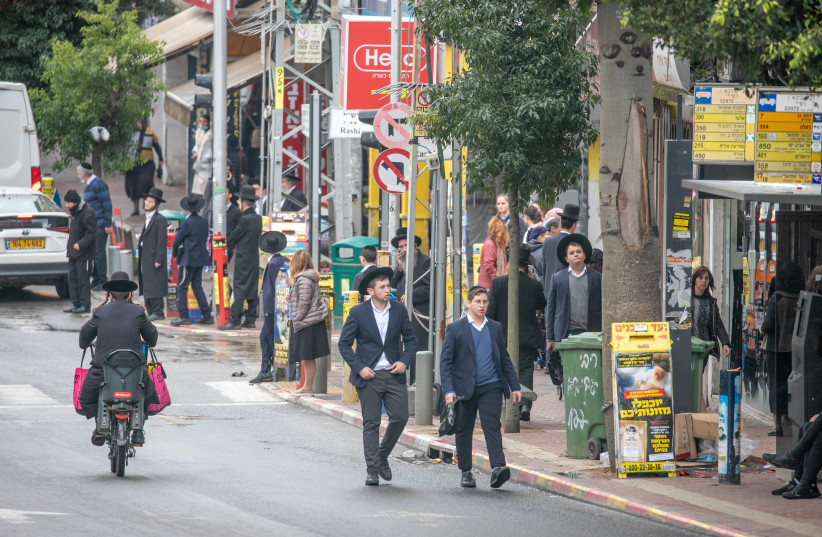Much criticism has been levied against the haredi (ultra-Orthodox) community since Hamas’s October 7 massacre, such as why they are not enlisting in the IDF or not at the forefront of assisting the now-bleeding Israeli civilian society.
Yet beneath the surface, the haredi community is going through a fascinating and possibly historic phenomenon: More and more voices of either haredi rabbis or politicians have called out for major changes within their communities, while simultaneously, thousands of grassroots initiatives have been popping up around the country, led by individual or groups of haredim.
On Sunday, a survey conducted within the haredi community found a significant shift in its attitude toward Israeli society in general during the Gaza war. The survey, carried out by the Haredi Institute for Public Affairs in collaboration with the Askaria research company, showed that nearly three-fourths of the haredi community felt a stronger sense of shared destiny with Israeli society due to the recent war. Seventy-five percent of the respondents expressed a deep connection to the “Israeli narrative,” and around 32% supported increased involvement of their community in Israeli society.
The survey highlighted a substantial increase in support for haredi enlistment in the IDF – from 9% to 29%. Furthermore, 70% agreed that haredi individuals not studying Torah should contribute by enlisting in the IDF or doing national service. The survey also found that 58% felt the war had impacted their sense of personal security, with many considering obtaining gun licenses or joining preparatory classes for IDF service.
When the war broke out, a significant increase in enlistment was reported, a development confirmed by IDF Spokesman R.-Adm. Daniel Hagari. All these people have since joined the IDF. This surge in enlistment aligned with the growing trend of haredi integration into broader Israeli society, with data from the Tatia haredi think tank showing that 68% of haredim support military enlistment, and that 60% believe in their community’s contribution to the state, especially during wartime.

Part of a larger trend
Dr. Nechumi Yaffe, a public-policy professor at Tel Aviv University and head of Tatia, attributed this trend to a larger and longer shift in the haredi community toward a more modern outlook. A significant portion of the community – including those who are more deeply rooted in ultra-Orthodox traditions, more insulated, and less open to the modern world – are seeking ways to assimilate further into Israeli identity, within their limits, she said. This change can be reflected in the rising numbers of haredim eager to enlist in the IDF, driven by a desire not to feel estranged from the Israeli narrative.
These initiatives, the rising numbers, and what they will lead to are fascinating. More so, though, it is important and reflects a historic evolution: There have been thousands of haredi boys volunteering at agricultural sites across the country that have lost both foreign workers hired and Israeli workers due to the war.
As well, individual families have independently been cooking enormous amounts of food for soldiers out in the field. A video, which circulated on social media, displayed a group of young haredi yeshiva boys singing “Hatikvah,” which represents Zionism at its most basic level, something that haredi communities have declined to accept for decades and even fought against.
A similar shift can be noted in the ultra-Orthodox communities in the US. Agudath Israel of America, one of the largest mainstream haredi groups, called on its members to participate in the largest pro-Israel rally in US history.
Something positive and refreshing is happening in haredi society. These social changes usually take many years to happen, but the October 7 massacre accelerated them dramatically. One reason for this accelerated shift is because every part of Israeli society has sacrificed loved ones in this war.
The haredim haven’t felt a substantial change in their lifestyle, and this bothers many of them. They want to contribute and to be included. Their identity is as much Israeli as it is haredi, or religious, and therefore, they want to integrate more and more into Israeli society, without compromising on their religious beliefs.
We encourage Israeli politicians and leaders to embrace this phenomenon and to give it time.
